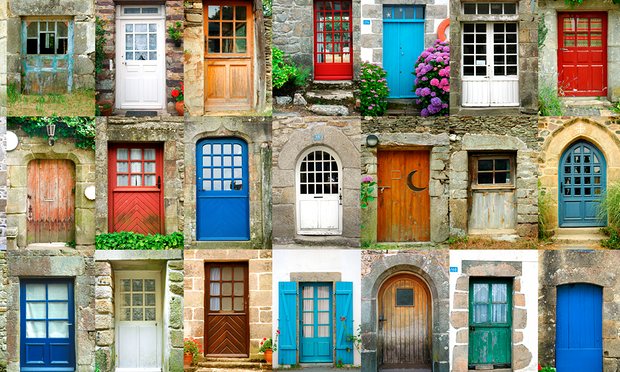For a long time, Africans have perceived traveling as non essential especially within the continent thus only reserved for the high net-worth persons. Attributed mostly to their supposedly low spending power, Africans are said to believe that money should be spent on ‘more important priorities’ which exclude traveling (in this case considered as leisure). Therefore, spending on travel is only for purposes of unavoidable occasions such as burial or wedding ceremonies either within or without the home country.
Euromonitor International however says this trend is gradually changing, as more Africans are now embracing domestic tourism both in their countries and within the continent. This is highly as a result of efforts by respective governments to ease travel measures, with favorable packages that are affordable for the locals as well as visa free restrictions within many African countries.
Kenya: A Case Study
After a significant period of severe decline in the influx of tourists in Kenya, due to, among others, the election related challenges and impact of international economic and financial crises as well as security related challenges, the Tourism Sector is gradually stabilizing. This was largely attributed to the lifting of travel advisories by the United Kingdom, especially towards the country’s 2015 peak season. The relative security across Kenya during the 2015-2016 period has also gone a long way in restoring confidence among both domestic and international tourists.
American President Barrack Obama’s visit to Kenya in July last year (approximately a year ago), as well as major international conferences; notably the 10th WTO Ministerial Conference held in Nairobi in December 2015 and the just concluded UNCTAD 14 Conference (July 2016), were great endorsements towards restoring the country’s Tourism Industry. In supporting the claims, Estelle Verdier, East & Southern Africa’s Managing Director of Jumia Travel, Africa’s leading online hotel booking portal, depicts the global trust in the Kenyan tourism industry as a great milestone in encouraging locals to explore the country’s great tourist treasures.
The zeal by Kenyans to save the dwindling industry cannot be overlooked. The Kenyan government has come out to strongly encourage Kenyans to embrace domestic tourism. Recently, Kenyan President Uhuru Kenyatta said that Kenya should not rely on foreign markets to boost the tourism sector; rather they should come together and promote domestic tourism. Among the measures put by the government to encourage local tourism is by providing that corporate and business entities (employers) pay vacation trip expenses for their staff on annual leave in Kenya and deduct such expenditures in their taxes. This would bring to total over 300,000 additional Kenyan guests in Kenyan hotels throughout the country.
Being the enthusiasts they always are, Kenyans took up the spirit to rise above its dependence on foreign tourists to grow the industry. The introduction of campaigns like ‘Tembea Kenya’ (A Swahili statement for Tour Kenya), is a true reflection of Kenyans patriotic spirit. With an aim to promote tourism particularly among Kenyans, Tembea Kenya, led by local Radio host Maina Kageni, sets to tour 53 locations around the country. Corporates have also not been left behind, with campaigns such as#KenyaYetu by Jumia Travel, aiming to encourage Kenyans to share photos of their travel experience from across various destinations in the country. This move is also seen to motivate others to tour the same destinations to first hand experience the country in all its beauty.
With such initiatives by Kenyans for Kenya, domestic tourism has become significant as it is expected to cushion tourism during low periods of international arrivals. In Kenya’s Vision 2030, tourism has been identified as one of the top priority areas for driving a double digit economic growth and development.
However, while enthusiasts remain optimistic, early political campaign rallies this year in preparation for the 2017 election might cause an alarm in the tourism sector. Yet, despite these numerous challenges, Kenya remains a top travel destination in the world; and hopefully the aspect of domestic tourism will place Kenya at an even better position.
Conclusion
Kenya is just but one of the many African countries striving to cash in on domestic tourism, especially during turbulent times. Figures by the Domestic Tourism Growth Strategy (2012-2020), show the volume of domestic holiday travelers in South Africa rising from 3.9 million in 2010 to a target 6 million in 2015. The trajectory shows a possible 9 million domestic tourists by the year 2020.
Other factors highly contributing to the increase in domestic tourism in Africa are the presence of local airlines offering affordable air fares for locals traveling from one domestic short haul destination to another. Provision of discounted boarding rates for resident tourists by major hotels has also gone a long way in encouraging locals to travel; not to mention the flexible mobile payment options like EcoCash in Zimbabwe, Tigo Pesa in Tanzania and M Pesa in Kenya among others.
According to UNWTO Tourism Highlights 2016, as a worldwide export category, tourism ranks third after fuels and chemicals and ahead of food and automotive products. In many developing countries, tourism ranks as the first export sector. As an emerging tourism destination from the traditional favorites of Europe and America, Africa has proved resilient to the occasional shocks and is set to receive a three-fold boost in its tourism revenue with the continued domestic tourism initiatives.










